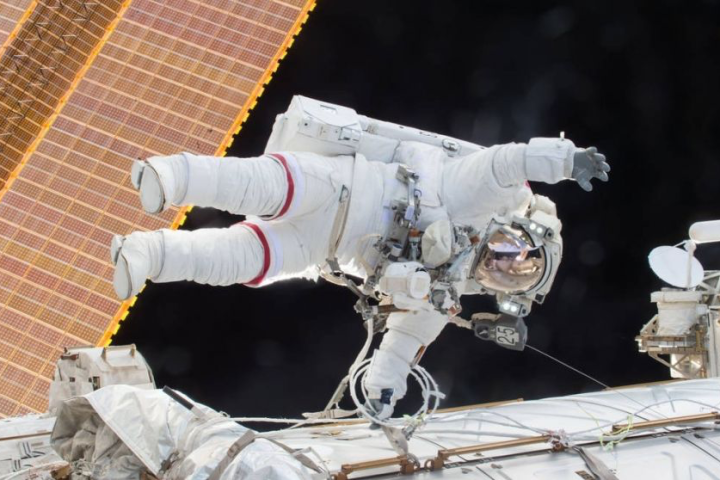
Kelly and Kornienko’s time in space was notable both for its duration and for the scientific opportunities it offered. Both men were subjected to routine health testing and analysis to study the effects of long-term space travel on the body. Samples were taken before departure, during the mission, and will continue for more than a year after their return to Earth. Kelly also has a twin brother, former astronaut Mark Kelly, who participated in a parallel twin study on Earth. This set of data provides an interesting comparison between Earth and space-based changes on human physiology.
Related: Scott Kelly answered questions on Tumblr, and the result was pretty hilarious
Data collected from the Year in Space study will be used to plan future long-term missions, such as the planned mission to Mars, which will of course require a lengthy journey to the red planet. To combat the effects of zero gravity, astronauts must exercise daily to offset the loss of bone mass (up to 1.5 percent monthly) that occurs in space. They also have to deal with fluid accumulation in the face due to the zero gravity living conditions, as well as exposure to cosmic radiation, which will be present in greater amounts during the mission to Mars.
Kelly and Kornienko’s journey back home will be televised live on NASA TV with the final farewell and hatch closure scheduled for 4:15 pm ET. Undocking of the Soyuz spacecraft is slated for 7:45 pm with final de-orbit and landing planned for 10:34 pm and 11:27 pm, respectively.
Editors' Recommendations
- How to watch SpaceX Crew-4 astronauts launch to ISS
- Watch NASA’s Crew-3 astronauts share highlights of their ISS mission
- SpaceX Crew-4 astronauts prep for next month’s ISS mission
- These amazing Earth photos from the ISS look more like works of art
- This is the free app ISS astronauts use for Earth photos




